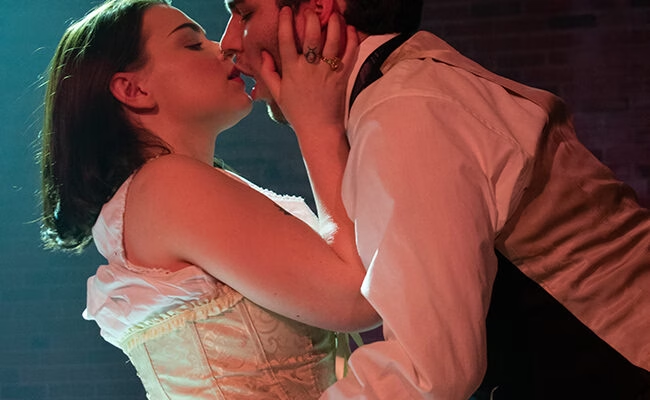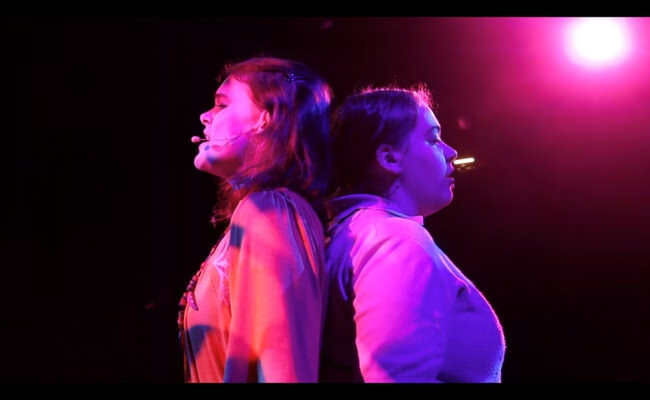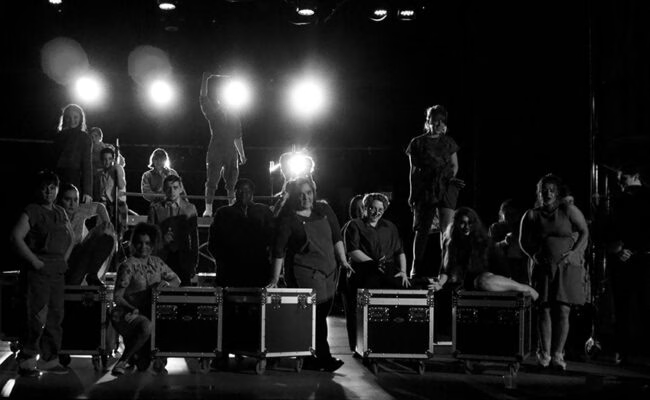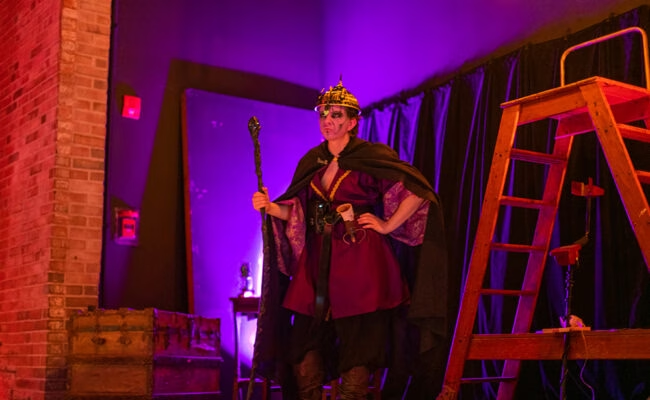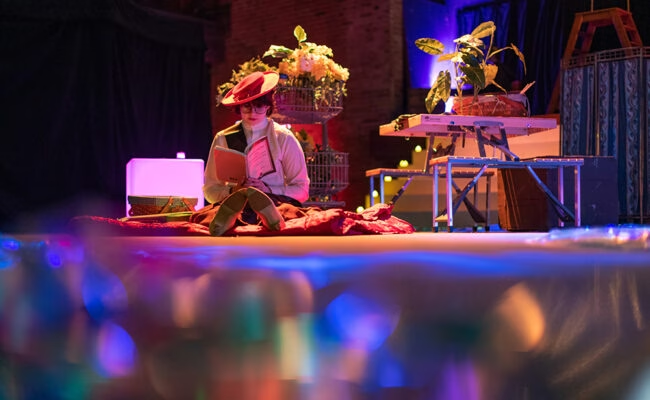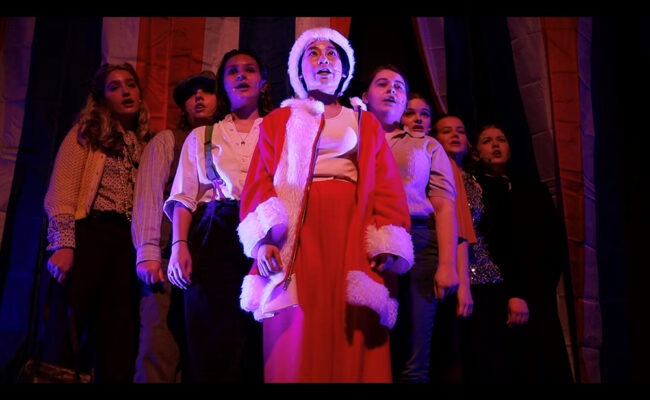Through words on a page, action on a stage, garments on the body, or light across a set piece, you will be encouraged to explore all the ways that the visual, linguistic, and sonic language of theatre can be used effectively to tell a story.
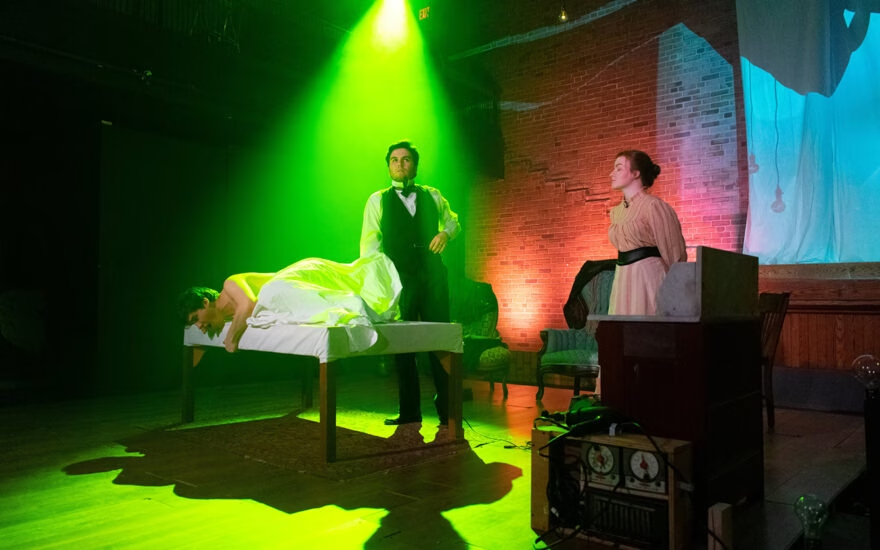
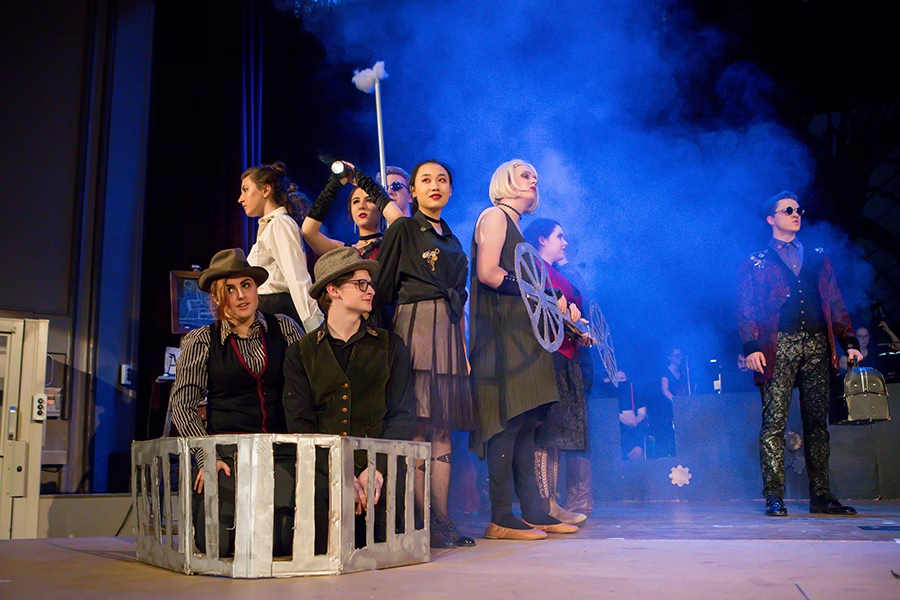
Why Study theatre arts at Clark?
- Join an inclusive and innovative theatre arts program where students are encouraged and empowered to tell their unique stories.
- Gain the skills through foundational and practicum courses to perform and participate on and off stage in school productions and Clark’s many performance-focused student groups.
- Collaborate with student directors, designers, actors and writers on Clarks New Play Festival, a biennial event where student playwrights present their work at Clark’s Michelson Theatre.
- Apply
- Request Info
Are you ready to take the first step?
Sign up to receive information on academics, student life, and the undergraduate admissions process.
Featured Courses
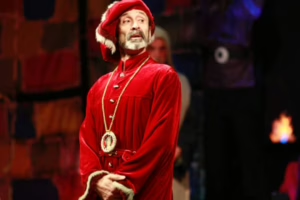
Theatre History 1: Greeks to Shakespeare
Surveys the traditional dramatic canon of western literature with a focus on historical context and analysis. Course readings will include plays by Sophocles, Euripides, Jonson, and Shakespeare.
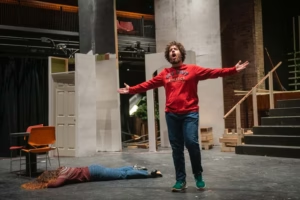
Theatre Practicum
Audition to join the acting track or apply to join the tech track to experience the full process of putting up a fully produced show. Script analysis, collaborative work, and critical engagement with the text are balanced by the thrill of live performance and extensive faculty mentorship in this team-taught course.

The Creative Actor
Through a series of workshops, the student becomes familiar with the basic tools necessary to the art of acting. The approach is based on the techniques of Stanislavski, Viola Spolin, Joseph Chaikin, Robert Cohen and original exercises, including an introduction to basic voice and movement for the actor.
Clark’s theatre arts major offers courses in performance, production, design and history. Whether your goal is to pursue a professional career in theatre or simply gain a greater understanding of dramatic literature, or just being part of a production, Clark faculty will work with you to guide you through the course offerings on a path that fits your interests and goals that can incorporate internships and study away/abroad options.
The major consists of 11 courses: 3 core, 5 specialty (focusing on your area of interest), and three related courses chosen to complement your professional program. You can specialize in acting, playwrighting, or theatrical production and design, or choose your own area of focus.
At Clark you’ll get more than a great education; you’ll also be prepared for a long, productive career and life of consequence. And once you’ve completed your degree, you can join other Clark alumni who have gone on to work for great organizations and attend some of the best graduate schools in the world. The following communities may be of interest:
Arts, Media, Design, and Communications
Business, Marketing, and Entrepreneurship
Clark Alumni continue to pursue their creative passions after graduations. Theatre arts majors work as actors, comics, designers, theatrical technicians, directors, playwrights, arts educators, film makers, project managers, and more.
Founders, Directors
Company One Theatre, Boston, Mass.
Founder, Artistic Director
Custom Made Theatre Company, San Francisco, Calif.
“Top Chef” Host
BRAVO Television
Freelance Director and Marketing Assistant
Primary Stages Theater, N.Y.
Archivist
Library of Congress
Teacher
Ramaz School, New York, N.Y.
The Clark Experience
The Clark Experience brings together the exceptional education you’ll receive in the classroom and so much more. Through focus and flexibility, it ensures you’ll leave Clark with the creativity, confidence, and resilience to succeed and lead a life of meaning and consequence.
Frequently asked questions
What can I do with a major in theatre arts?
At Clark you’ll get more than a great education; you’ll also be prepared for a long, productive career and life of consequence. And once you’ve completed your degree, you can join other Clark alumni who have gone on to work for great organizations and attend some of the best graduate schools in the world.
What skills will I learn?
- Acting students will develop an understanding of script analysis, characterization, style, and the relationship of the actor to the audience
- You will learn to interpret and critique plays from different points of view and reference, including those of the playwright, actor, director, historian, and dramaturge
- You will be introduced to the techniques and organization involved in providing the stage with scenery, lights, and properties, including drafting, scaled ground plans, elements of design, and styles of production. Makeup, lighting, and set construction are hands-on in applied lab/crew assignments.
What facilities are available?
The bustling Little Center is home to Clark’s theatre arts program. In addition to rehearsal and performance spaces, it houses:
- The Michelson Theater — a 120-seat black box theater used for all V&PA theater productions
- The Experimental Theater — a 30-seat theater used for student productions and student groups, as well as for “read-throughs” of student-written plays
- Costume-design shop
- Set-building workshop
Can I earn an academic achievement award in theater arts?
Patricia M. Plamondon Undergraduate Award in Visual and Performing Arts
The Patricia M. Plamondon Award is given to juniors and seniors who have demonstrated their talent in and commitment to the arts and for whom the award will serve to enhance their studies, research, or project-related travel. The award is made annually by a vote of the full-time faculty of the Department of Visual and Performing Arts.
Is there a theater honors program?
During your junior year, you might be accepted into the theatre arts honors program. Joining the program means you’ll work closely with a professor to create a project on a topic of your choice. This can take the form of writing a play, performing a role, etc., with an emphasis on attaining a professional standard of work. The thesis must be performed and/or presented as a senior.
Theatre Arts at Clark
Be a force for change.
Come study at a small research university with a strong liberal arts core.



